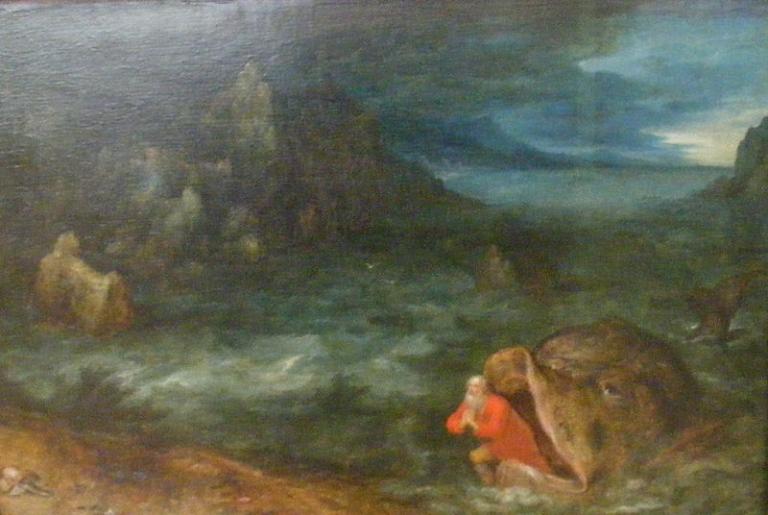
(Wikimedia Commons public domain image)
Compare Matthew 12:38-42; Mark 8:11-12
Some have argued that, because Jesus cites the story of Jonah, that means that he believed the story of Jonah to be historically true. And, because Jesus was the Son of God, his believing the story of Jonah to be historically true proves that, in fact, it is historically true.
I myself am disposed to believe that there is a historical core, at a minimum, to the little story of Jonah.
But I’m not at all sure that either of the propositions in the first paragraph above is sound.
It’s certainly conceivable to me that someone might cite a story to make a point without taking any position at all on whether the story is literally true, or, even, while believing it to be wholly fictional. (“It’s just as Hamlet said to Polonius.” “She looks like Cruella De Vil.” “Consider Iago, if you want to see how false friends operate.”)
But even if the mortal Jesus assumed it to be literally historical, that may or may not prove it to be so. I’m supposing that the veil that enshrouds all of us largely covered Jesus, too, during his mortality. Otherwise, if he had an ever-clear memory of all of the details of the pre-mortal council, and so forth, his mortality would be so unlike ours that, in a sense, it would be irrelevant. His trials would have been very different from ours. He would never have experienced the doubts and uncertainties that are our daily fare. And, if he was veiled at all, that would probably mean that his culture was genuinely the culture of his time, just as his diet and clothing were those of his time, and just as his body was definitively that of a first-century Palestinian Jew and his daily language was first-century Palestinian Aramaic. And the reigning presumption among the ordinary people of his time and place, so far as we know, was that the story of Jonah was historically true. Probably in all its details.
With that said, though, as I’ve indicated above, I’m fine with the idea that there is at least a historical core to Jonah’s literally wonderful story. In fact, I’m disposed to believe it.

Luke 11:33
Compare Matthew 5:15; Mark 4:21; Luke 8:16
“No one after lighting a lamp puts it in a cellar or under a bushel, but on a stand, that those who enter may see the light.”
There is a tension here. The Lord repeatedly tells us not to do good works in order to be “seen of men,” but we’re also told to “let your light so shine before men, that they may see your good works, and glorify your Father which is in heaven.”
Are these two commandments contradictory?
In my judgment, plainly not.
And here’s the difference:
We’re to do good works, yes. But not so that people might glorify and admire us. Not in order for our sheer wonderfulness to be seen. Rather, so that, in seeing whatever good works we manage to do, people might glorify God. They should see the life of Christian discipleship and say, “I want that. I need that for myself and for my family.”
It’s not about us. It’s never about us. Whatever we may sometimes imagine.











